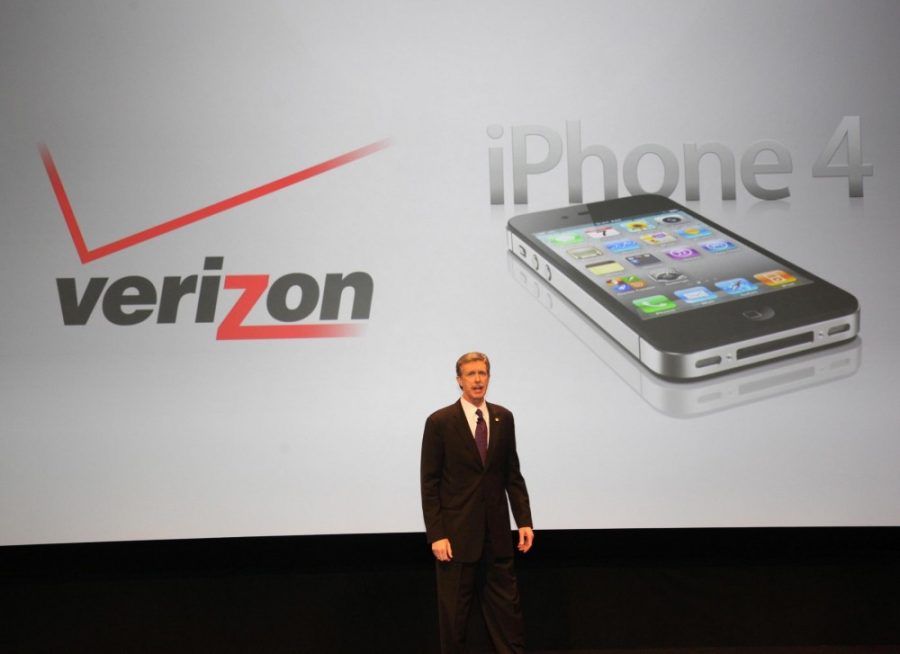Those who have been waiting for the Verizon iPhone in-store launch Thursday need to be prepared to navigate on what is expected to be a day of high demand.
Verizon officials say the company has been preparing employees and testing its systems to make the process as informative, pleasant and quick as possible. Consumer demand for the iPhone has overwhelmed Apple and AT&T before, and Verizon intends to avoid those mistakes. Here is a look at howVerizon’s iPhone offering stacks up against AT&T.
COST: AT&T and Verizon priced the iPhone 4 with a new contract identically for now:
—16GB model: $199.99 with a new two-year agreement
—32GB model: $299.99 with a new two-year agreement
An iPhone 4 with no contract obligations:
From Verizon:
—$649.99 for 16GB
—$749.99 for 32GB
From AT&T:
—$599.99 for 16GB
—$699.99 for 32GB
PLANS: The two carriers match each other closely on calling, texting and tethering (allowing another device to connect to the Internet using the phone’s 3G connection). Calling plan prices are identical at $40 per month. AT&T does offer rollover minutes though.
Of course if all you wanted to do is talk, you shouldn’t be looking at an iPhone. Carriers require data plans for all smart phones. If you pick all the cheapest options, AT&T’s plan costs about $10 a month less, around $65, but that is with the considerably smaller $15 200MB data allotment — enough for almost anyone’s e-mail needs and moderate Web browsing. An hour of streaming music over the free service from Pandora can eat as much as 40MB, so Wi-Fi is helpful to avoid overages.
In a more apples-to-apples comparison, Verizon’s uncapped data plan is $29.99 while AT&T’s top-tier plan with 2GB is $25. Add in voice and the monthly bills level out to around $75 each. AT&T stopped offering unlimited data in favor of tiered plans last summer, drawing the ire of data-hungry users.Verizon has made clear that its all-you-can-eat data plan will not be offered indefinitely. Expect a move toward tiered data in the near future.
Optional tethering is available from both companies for $20. Verizon allows up to five devices to be connected; AT&T allows just one.
Text plans vary slightly. AT&T now offers 1,000 texts for $10 or unlimited texting for $20. Verizon offers 250 texts for $5, 500 texts for $10 and 5,000 texts for $20.
Unless users can make do with AT&T’s 200MB per month plan, the difference in the monthly charges is so near as to make no difference.
IF YOU’RE SWITCHING: Switchers can recoup some of their cash by selling their old devices. Verizon has a trade-in program for those wanting to avoid the hassle of listing the device, filtering the responses and meeting interested parties. AT&T also has an online trade-in service.
Or you might consider keeping the iPhone and using it without a cellular service like an iPod Touch. The device will play media and games. GPS-enabled phones do not need wireless service as long as you have pre-downloaded maps such as the RoadMate app from Magellan.
COVERAGE: Check both companies’ voice and data coverage maps to see if the areas where you expect to have the highest use are included. Even better: Ask neighbors and co-workers about their experiences. Despite the claims, either company can leave you hunting for a signal.
TALK AND BROWSE: AT&T’s network allows callers to use data while on a call. Verizon’s 3G technology, CDMA, cannot.
‘DEATH GRIP’: Apple tweaked the design of the iPhone 4 after users said holding the phone certain ways interfered with the signal (prompting Apple to issue free cases). Hands-on reports have not revealed any new “”death grip”” issues.
SPEED: Which is faster? It depends. AT&T’s 3G has higher theoretical network speed. It is throttled to 0.5 to 1.2 Mbps for downloads, though some may see bursts of higher speeds. Verizon’s site says to expect 0.6 to 1.4 Mbps for downloads on its 3G network. Downloading a 2MB photo can take about a minute or more on a slow connection, but just a few seconds over a fast one.
Technology website CNet.com recently conducted an impromptu comparison of loading times between the dueling carriers’ iPhones. Though hardly conclusive, Verizon’s iPhone loaded the page a couple of seconds faster.
Following tests in 2010, PCWorld declared AT&T’s 3G the fastest in the U.S. though also the least consistent. Like overall reception this depends on congestion in your specific location. Verizon appears to be confident, given that it is offering hot spot tethering with the iPhone.
THE QUEUES: At stores, lines will be permitted to form beginning at 5 a.m., and doors will open at 7 a.m. Verizon aims to provide accurate inbound information to customers about wait times and plans to have free bottled water available. Some stores are considering additional refreshments and snacks.









